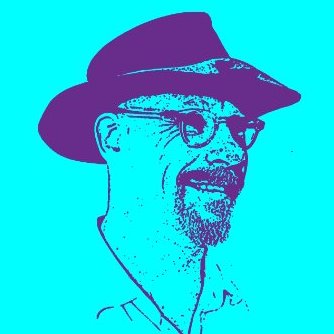Mark Mullen explains how volunteering led to making a huge political impact in a far away place.
As a young backpacker volunteering in Malawi, Mark Mullen had no idea he would become a spokesperson for the West leading up to the peaceful revolution in the Republic of Georgia. Eventually, he would be known by many of the 4.5 million citizens of the ex-Russian province as the guy who helped bring down Eduard Shevardnadze. He wasn’t working towards that goal at all, but by diving into Georgian culture and getting to know everyone, he became the go to guy for Georgian journalists looking for a statement from “the West”. Mullen was there for 15 years, instead the the typical two year tour for foreigners. Also, unlike many diplomats, Mullen was willing to stick to his neck out and say something substantial on TV. When Shevardnadze finally fell, the Speaker of the House became President. Of course, she asked Mullen for advice. He told her to simply say on TV, in English, and thus to the world, essentially, we’re good here in Georgia.
Mark: Well, to try to not have too long of a backswing, I graduated with a degree in history from Wesleyan University with not much of an idea what to do with it and ended up traveling around. I was in Japan for a while and then ended up getting a job distributing food during a drought in Malawi in East Africa. I mean, it wasn’t really a job I sort of volunteered for 80 bucks a month, but then they had a referendum there on whether to become a multi-party democracy and it was very exciting and I observed that and sort of put myself into the middle of that and then I found the National Democratic Institute or NDI when I came back and got ready for a lengthy job search and they were opening a office in Malawi — didn’t know anyone who’ve ever been there and so they hired me and I moved back there and did a civic education program there.
Jeffery: That’s something because it’s almost like a random beginning, right? You were in Malawi and you were traveling around, you started to help distribute food and then you came back and you look for a job and you had this credential from Malawi which allowed you to get a job at the Democratic Institute…
Mark: NDI…Yes, exactly. It was totally random. I mean, even how I got the job in Malawi to distribute food was kind of somebody I talk to… it was all completely random. Now, my first year in Malawi I was really just hired because I’d been there and I kind of just did the run to the office and dealt with getting a telephone line, which at that time was quite difficult, you know, all the certain logistical stuff; but I’d been there for a while so I ended up having influence in sort of how we design the whole program there. They had never had elections and all that stuff.
And then after a year there I went directly from there to — I was promoted fairly soon after the Oslo agreement was signed to do what was supposed to be a voter education program ended up… I was supposed to be there for three months, it ended up being almost 3 years because the status negotiations took so long and so there I designed a civic program and set it up throughout the West Banks and Gaza and East Jerusalem.
It was at a very interesting time, I mean, looking back everyone says, “Oh, that was such an optimistic time.” I mean, it don’t really feel like it then because the closure was on and it was pretty tough, but I guess compared to now probably so. So then at that point I thought, “Well, okay, I probably ought to get a life and do something real,” I thought maybe I should get a master’s degree because I never studied any of the stuff that I was doing and I thought development studies seem like a good idea, graduate school in the UK was much cheaper. And so I applied to graduate school in the UK, got in, was ready to go and my employer said, oh, you’ve done a good job and stuff like that and I said, “Okay well I want more money and I will only go to the these four countries and I will only go if I’m the head of the office and I only want to do civic work, I don’t want to deal with political parties, you know, whatever else or Parliament. It was sort of like I was leaving anyway, I had already paid my deposit in graduate school and I didn’t think they would take me up on the offer and the four places I said I would go were Ghana, Sri Lanka, Vietnam or Georgia and they were just places where we had stuff going on and it seems like interesting places I couldn’t complain about and so they offered me the job to go to Georgia.




